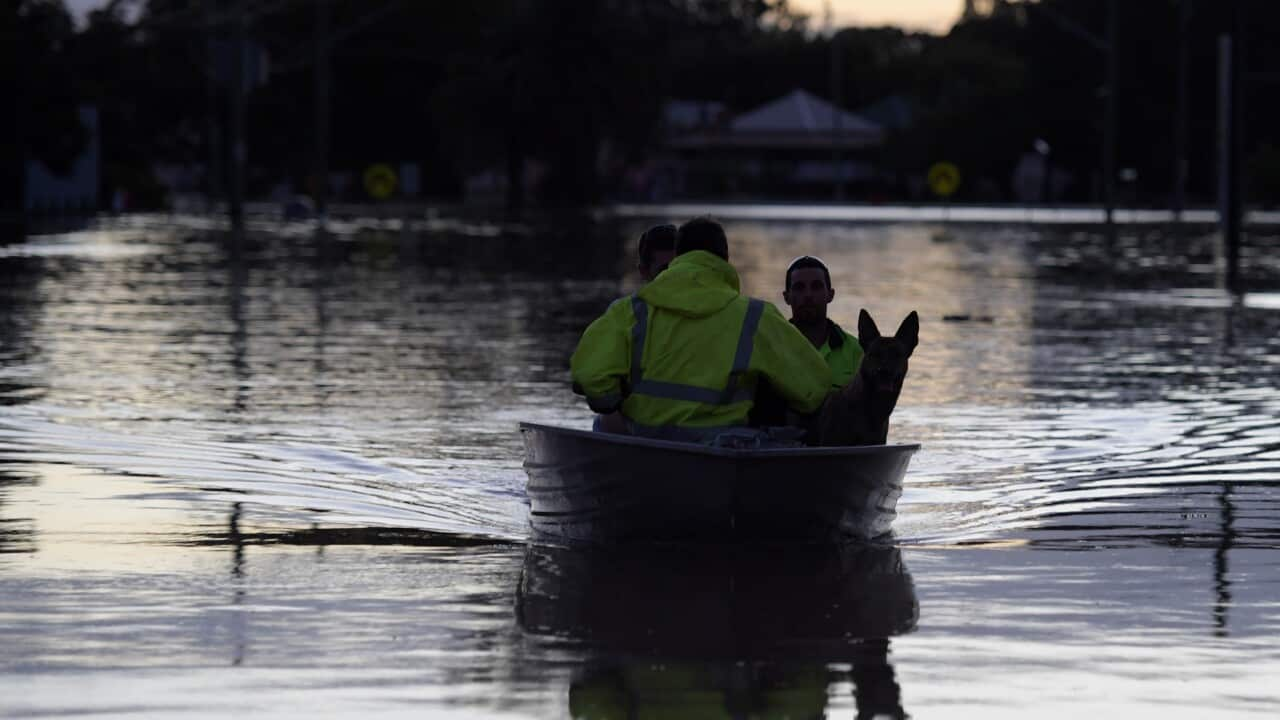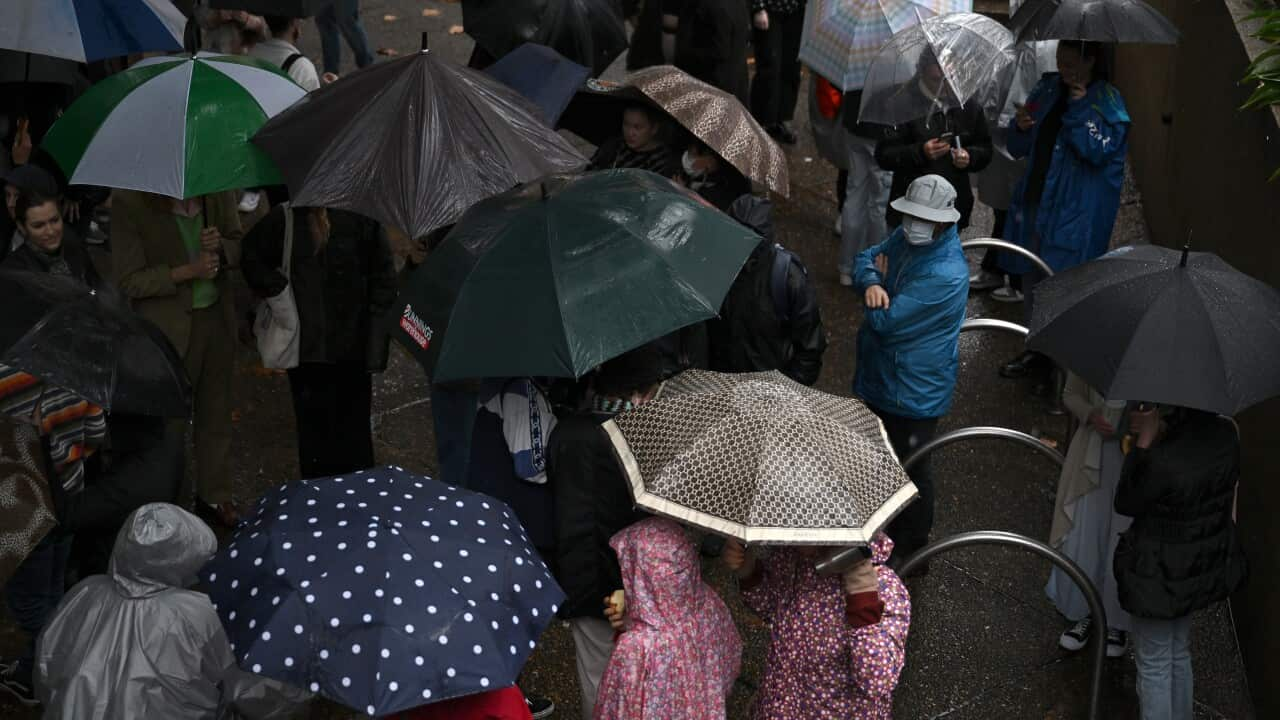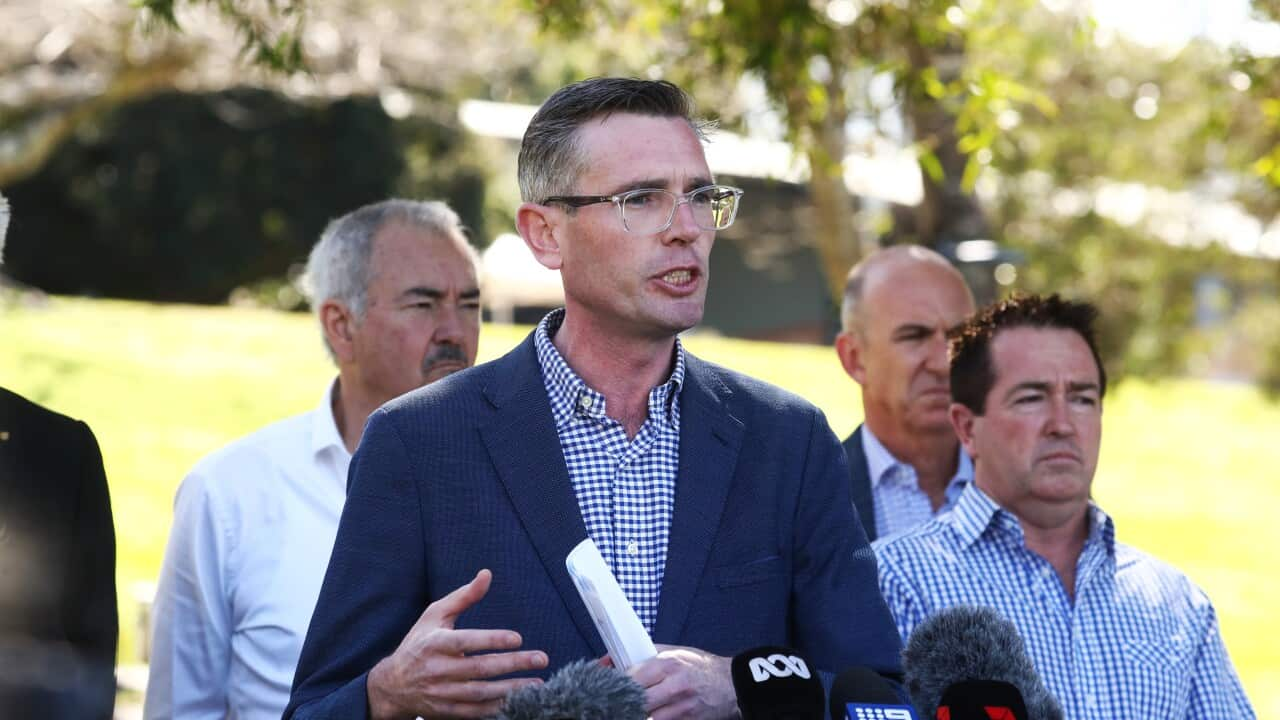Key points
- BOM is forecasting a third La Niña.
- How could this impact our mental health?
At the end of February, Harper Dalton lost virtually everything he owned.
His low-set house, which he purchased in 2020 in south Lismore, was destroyed by flooding following the extreme La Niña weather event.
Now, along with his neighbours and community, he's facing financial stress, uncertainty, and mental health impacts of the traumatic period.
"I think that the whole town has collective trauma ... I think that a lot of people are experiencing PTSD symptoms, and maybe aren't aware of that," he says.
"I'm hearing a lot of people say they used to listen to rain noises and now couldn't think of anything more traumatic to do before going to bed."

Harper Dalton says he believes many residents of Lismore and surrounding areas are experiencing PTSD symptoms following the La Niña weather and flooding earlier this year. Source: Supplied / Harper Dalton
"In the last two to three weeks, because we've had rain, I was really irritable and depressed and didn't want to do anything ... and I realised it's because of the rain, and it's that triggering of 'oh, ok, it could flood again'. It's just in the back of your brain," he says.
"Part of me thinks, a moderate flood I could deal with, but then if we have anything higher than that, that is my ceiling ... I don't know if I could come back from that mentally or physically."

Harper Dalton lost virtually everything he owns in the 2022 floods. Source: Supplied / Harper Dalton
Earlier this year, historic levels of rain in NSW led to devastating floods, thousands of residents being evacuated from their homes, 13 deaths across the state and ongoing uncertainty for communities in and around Lismore and the Northern Rivers.
Experts join residents in their concern around the potential impacts another La Niña event could have on mental health.
Psychiatrist Paul Valent says that following extreme weather events and trauma, people commonly experience impacts such as post-traumatic stress disorder (PTSD), anxiety and depression.
"There are a myriad of emotional responses, for instance shock, disbelief, fear, helplessness and powerlessness," Dr Valent says.
"The whole of the person is tested, not only emotionally but also physically and socially, so it's a whole psycho-social, cognitive, emotional, existential response."
Can rain really impact our mental health?
During colder months, some people suffer from Seasonal Affective Disorder (SAD), which refers to a form of depression brought on by weather. Symptoms include a feeling of hopeless, a lack of energy and changes in sleeping or eating patterns.
Professor Kim Fetheringham, Chair of Clinical Psychology at the University of Melbourne, says while SAD is more common in colder climates with little sunlight, Australia's wet weather can certainly impact moods and mental health for a myriad of reasons.
"We know mood is affected by the level of activity that you have, how much you're engaging in going out, doing activities outside the home, socialising, exercising. All those things can be really constrained in bad weather," she says.
"I think now though, given the fear people now have about the weather ... having rain is a trigger, not just for past trauma, but that uncertainty of what is going to happen, what's my longer-term future? So [that is] really driving I think, significant anxiety or a sense of helplessness."
Professor Fetheringham says natural disasters and extreme weather events can certainly cause significant mental health impacts for a substantial number of people.
"About 10 to 15 per cent of people might develop full-blown post-traumatic stress disorder, but we shouldn't also ignore [that] equally as prevalently people can develop depression [and] generalised anxiety. And if they've already got pre-existing mental health issues, they can get significantly exacerbated," she said.
"I think also what's really important contextually here is the cumulative nature of this trauma. The Northern Rivers, Lockyer Valley and Brisbane in the recent past have had significant flood events and natural disasters occurring ... so this is another, a bigger one, but one that's going to add to a cumulative effect on people's mental health as well."
"People are living in chronic uncertainty."
'Every time it rains, you're on edge'
East Lismore resident Crystal Lenane is all too familiar with the trauma and uncertainty associated with extreme weather events.
Despite spending $80,000 raising their house prior to the floods, Ms Lenane — along with her husband and two children — had to be rescued by the tinny brigade. With their house now uninhabitable, she says they have been living in limbo ever since.
The family has moved four times, is currently in a rental and has just purchased a caravan to live in temporarily while they assess their options and wait to find out more about government support or plans.
She has also begun counselling and has taken time off work for mental health reasons.
Ms Lenane says feelings of stress and anxiety are prevalent in the community following the floods.
"Every time it rains, you're just on edge," she says.

Crystal Lenane and her husband spent $80, 000 raising their house, but it was still significantly damaged in floods and is now uninhabitable. Source: Supplied / Crystal Lenane
After losing half a million dollars in property value in one night due to the floods, she describes their situation as "overwhelming".
"I regularly cry to my husband, because he's the only one that understands what our situation is."
"We want to stay in the community but I'm getting to the point where ... I don't think I can go through this again."
'I can't deal with another summer of rain'
Georgia Mills has recently relocated from Wollongong to the Gold Coast, with warmer weather being one of the factors for her move.
She wasn't impacted by flooding earlier this year, but regularly experiences low moods during cold and rainy weather, and says the excessive rain earlier this year impacted her mental health.
"Weather really impacts my mood a lot," she said.

Georgia Mills routinely struggles with low moods during cold and rainy weather, and says climate was a factor in her decision to move from Wollongong to the Gold Coast. Source: Supplied / Georgia Mills
When she heard about the prospect of a third La Niña event, she says she felt extremely frustrated.
"I feel like I can't deal with another summer of rain," she said.
"I feel a lot more lethargic and sleepy when it rains. I feel like I can't go outside and use up any energy so I'm sort of just in my room laying on my bed ... I feel a lot more down when it's cold and rainy weather compared to if it was sunny."













